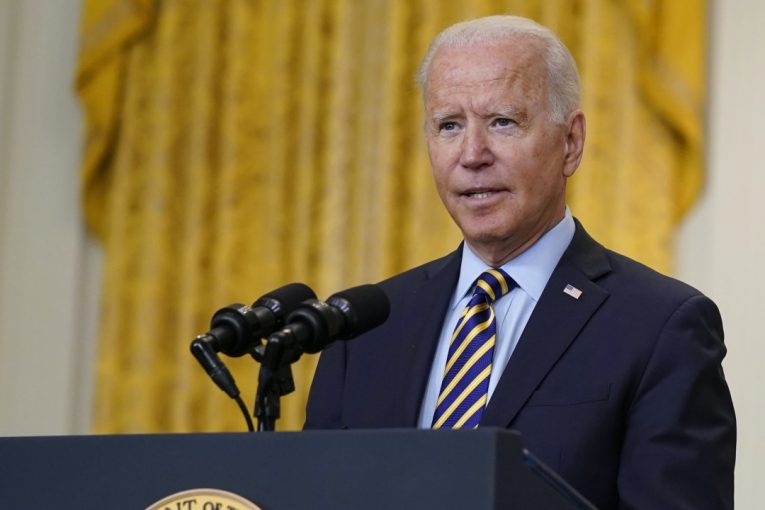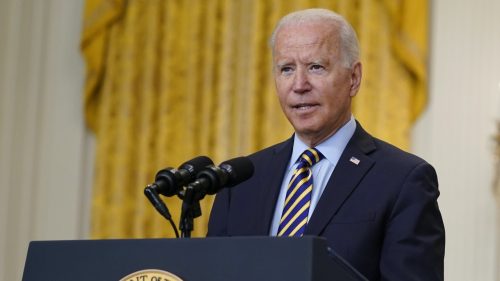

By Daniella Espinoza and Rena Abdusalam
WASHINGTON, DC – After about 16 months of ongoing negotiations, nearly 300,000 people who hold Temporary Protected Status (TPS) in the U.S. remain vulnerable to the risk of deportation, after talks in the case of Ramos v. Mayorkas failed between plaintiffs and the Biden administration, according to the Interfaith Immigration Coalition (IIC).
Those affected most hail from Haiti, Sudan, El Salvador, Honduras, Nicaragua and Nepal.
IIC explained before Biden’s time in office, TPS designations for those nations were ended when Trump made the decision in 2017. As a response, a class-action lawsuit was filed, allowing TPS holders to sue for their rights.
In 2018, a federal district judge granted an injunction to block the termination of the status; however, by 2020, the 9th Circuit of Appeals overturned this decision.
To continue such fights, plaintiffs then fought for a full hearing from the court blocking any immediate terminations.
By the time Biden took office in 2020, the new administration and plaintiffs initiated important negotiations with the goal of securing a settlement which was fair to those most affected.
On Oct 26, 2022, IIC said both groups failed to reach an agreement leading the case to be sent back once again to the 9th Circuit of Appeals.
The situation becomes even more complicated, said news reports, because the administration has already designated Haiti and Sudan for TPS outside of the lawsuit. This designation does however end in the upcoming year on February 3 and October 19, 2023 respectively.
On the other hand, the rest of the nations involved, (El Salvador, Honduras, Nicaragua, and Nepal,) are at a greater risk and disadvantage as their TPS statuses are set to expire next month on Dec. 31, 2022.
Ultimately, IIH claims, the current tension-filled conditions in each country —as well as Pakistan and Guatemala— continuously highlight the very need for protection rather than deportation.
IIC said many impacted people, advocates, and faith groups continue to remind President Biden’s administration that they have the authority to continue the holdings of TPS to the immigrants currently living in the U.S.. They accentuate legal dilemmas and executive neglect should not be an obstacle for the affected groups of people.
Composed of more than 55 faith groups, the IIC called for Biden’s administration to protect human rights and take action on TPS for the at-risk immigrants.
Berta Sanles, Policy Organizer with American Friends Service Committee (AFSC) Florid, said, “We need Congress to pass permanent protections and a pathway to citizenship for all immigrants. But while we continue to put pressure on Congress, we also need the Biden administration to act now to extend and redesignate Temporary Protected Status (TPS) for Nicaragua, Honduras, and El Salvador and grant TPS designation for Guatemala.”
Sanles added, “TPS redesignation will protect people from deportation—people like me who have been living in the U.S. for 22 years after leaving Nicaragua. Beyond being hit with natural disasters, Nicaragua is under dictatorship where human rights are being violated. The administration needs to protect Nicaraguans and others from countries that are not secure to go back to right now.”
Meredith Owen, Director of Policy and Advocacy at Church World Service, stated, “The irony of having temporary protected status is that while safety may have a time limit, the danger does not. The promise of security that the United States extends should not be based on an arbitrary timeline, but rather on the ultimate safety of the men, women, and children who call this nation home.”
Owen argued, “Whether from Central America, Southeast Asia, or the Middle East, families should not be forced to return, particularly when the threat of harm remains. President Biden has the power to ensure their safety, he simply needs to make the choice to do so.”
Fran Eskin-Royer, Executive Director of the National Advocacy Center of the Sisters of the Good Shepherd said, “The end of the year brings fear for several hundred thousand people living in the United States under Temporary Protected Status from El Salvador, Honduras, Nicaragua and Nepal. Unless President Biden re-designates their status, they will be forced back to countries in turmoil and crisis.
“Additionally, TPS holders from Sudan and Haiti will experience this same fear next year. America opened our arms recognizing the severity of life in these distressed societies. Now is not the time to change course. We seek compassion from President Biden. He determines their fate,” she added.
Sister Marie Lucey, Associate Director of Franciscan Action Network (FAN), said, “FAN urges the Biden administration not to continue the harmful, racist policies of the previous administration which ended TPS protections for thousands of people from El Salvador, Honduras, Nicaragua, and Nepal.
“Franciscans are challenged to view all people, especially those most vulnerable, as sisters and brothers, so we challenge the Biden administration to acknowledge that conditions in these countries necessitate TPS protection from the return of our brothers and sisters,” the Sister noted.

